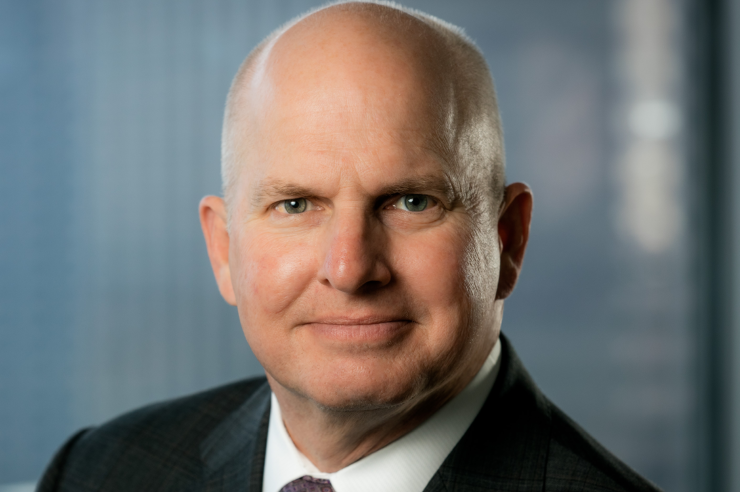Southwest municipal bond issuance inched higher last year to $83.79 billion with Texas, which accounted for 70% of the debt, taking the top volume crown among states nationwide.
The region's 0.6% gain over 2022 contrasted with the market's overall 2.8% issuance decline, according to LSEG Data & Analytics, formerly Refinitiv. Market volatility, higher interest rates, pandemic aid, and slower economic growth contributed to
With $59 billion of debt sold, Texas
Texas public school districts piled on debt after voters approved billions of dollars of general obligation bonds in recent years for new or expanded facilities to accommodate growing enrollment, technology improvements, renovations, and enhanced safety measures, particularly in the aftermath of the May 2022
The state was the home of the muni market's biggest deal of 2023 – the March sale of $3.52 billion of
Douglas Hartman, managing director and head of Southwest municipal finance at Jefferies, which led that deal and ranked as the region's and state's top underwriter in 2023, said explosive growth in Texas is driving demand for infrastructure.
"The growth in the state shows no signs of slowing down, so I expect debt issuance to continue its upward trend, certainly in the near term," he said in an email. "Over the past couple of years, there have been well over $100 billion of municipal bonds approved by Texas voters, most of which remain unissued."
Public finance heads at Hilltop Securities, 2023's top financial advisor in the region and in Texas, said current interest rates may not be deterring some Texas issuers seeking to lock in construction costs that have been climbing.
"I'm not sure how much the interest rate is going to impact (issuance) because when you have the demand you've got to build the infrastructure," said David Medanich, Hilltop's co-head of public finance.
Issuers in Texas are gearing up for this year's May and November bond elections.
Georgetown Independent School District
The Dallas City Council agreed Wednesday
A resolution passed by the Austin City Council Thursday aims to create an environmental investment plan that could include a November bond election to address climate change.
The largest drop in Texas issuance last year came from the healthcare sector, where it was down 63.6% at $954.6 million, according to LSEG data.
Colorado came in a distant second in the Southwest with nearly $6.79 billion of issuance, followed by Arizona with $5.1 billion. Among the region's eight states, only Arkansas joined Texas in having increased volume.
Eight out of the region's 10 biggest issuers were from Texas. Aside from the state's huge natural gas securitization deal, San Antonio sold nearly $1.7 billion of debt in six issues. The Colorado Housing and Finance Authority placed third with $1.585 billion in 38 deals.

Much of San Antonio's debt consisted of
Jefferies, with $10.14 billion of debt in 65 deals, including the Texas natural gas securitization, rose to the region's top underwriter spot
Jefferies, RBC, and Piper also ranked first, second, and third for underwriting deals in Texas, where laws enacted in 2021 prohibit governmental contracts with entities that "boycott" or "discriminate" against the fossil fuel or firearm industries. After banning UBS in 2022, Citigroup was ousted in January 2023. Both announced plans last year to
In January, the Texas Attorney General's Office made Barclays ineligible to underwrite state and local debt, while five other big investment banks — Bank of America, JP Morgan Chase, Morgan Stanley, RBC Capital Markets, and Wells Fargo — remain
In Oklahoma, Bank of America, JP Morgan Chase, which ranked second in 2022 for underwriting debt in the state, and Wells Fargo
BOK Financial Securities, RBC, and D.A. Davidson were 2023's top three underwriters in Oklahoma.
Hilltop is in a growth mode and has its eye on hiring people from inactive muni firms, according to public finance co-head Mike Bartolotta.
Hilltop was the region's busiest financial advisor again, credited with $15.1 billion of debt in 294 deals, followed by Estrada Hinojosa with $8.12 billion in 57 deals, and PFM Financial Advisors with nearly $7 billion in 61 deals.
McCall Parkhurst & Horton repeated as top bond counsel, credited with $18.2 billion in 353 deals, while Norton Rose Fulbright moved up to second place with $13.19 billion in 167 deals, and Bracewell dropped to third place at $9 billion in 104 deals.
The amount of insured bonds in the region rose 43.8% to $9.72 billion. In Texas, insured bonds totaled $7.9 billion, a nearly 60% increase over 2022. Some school districts





